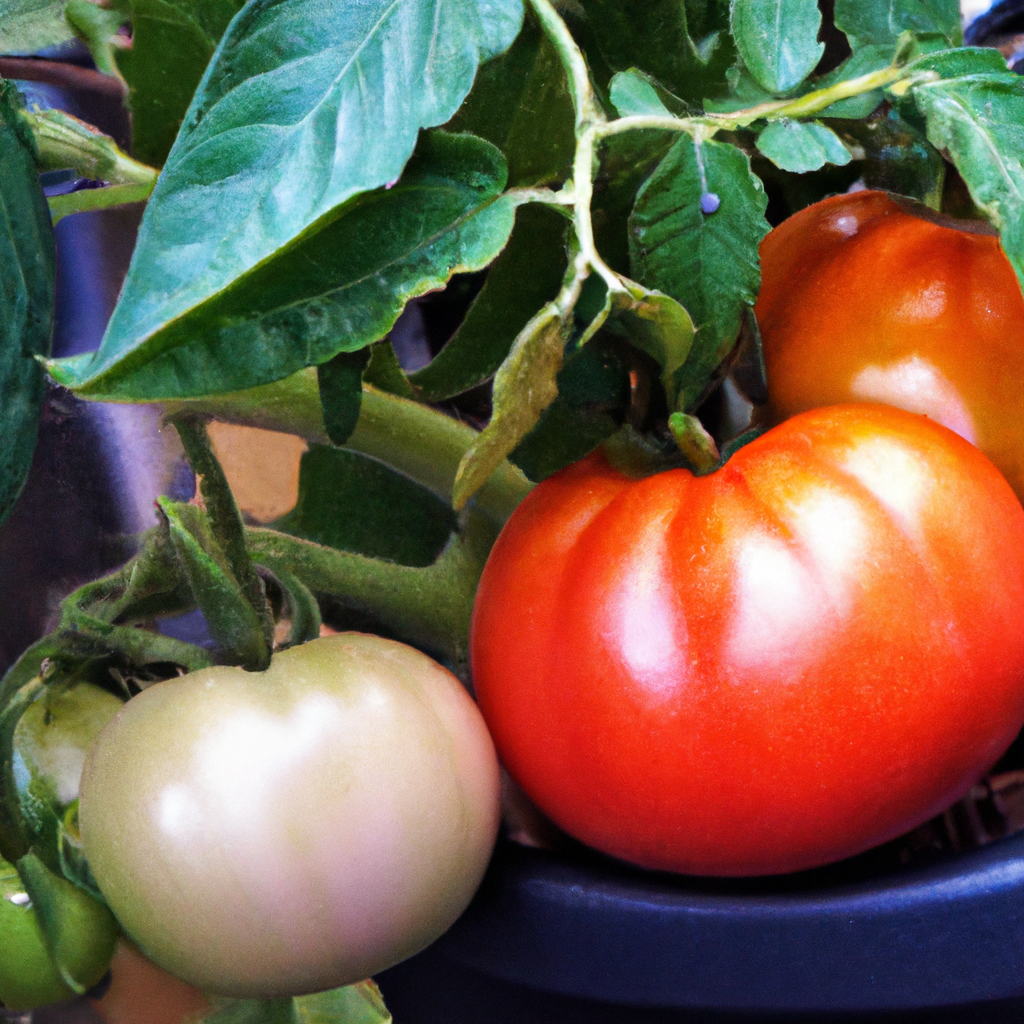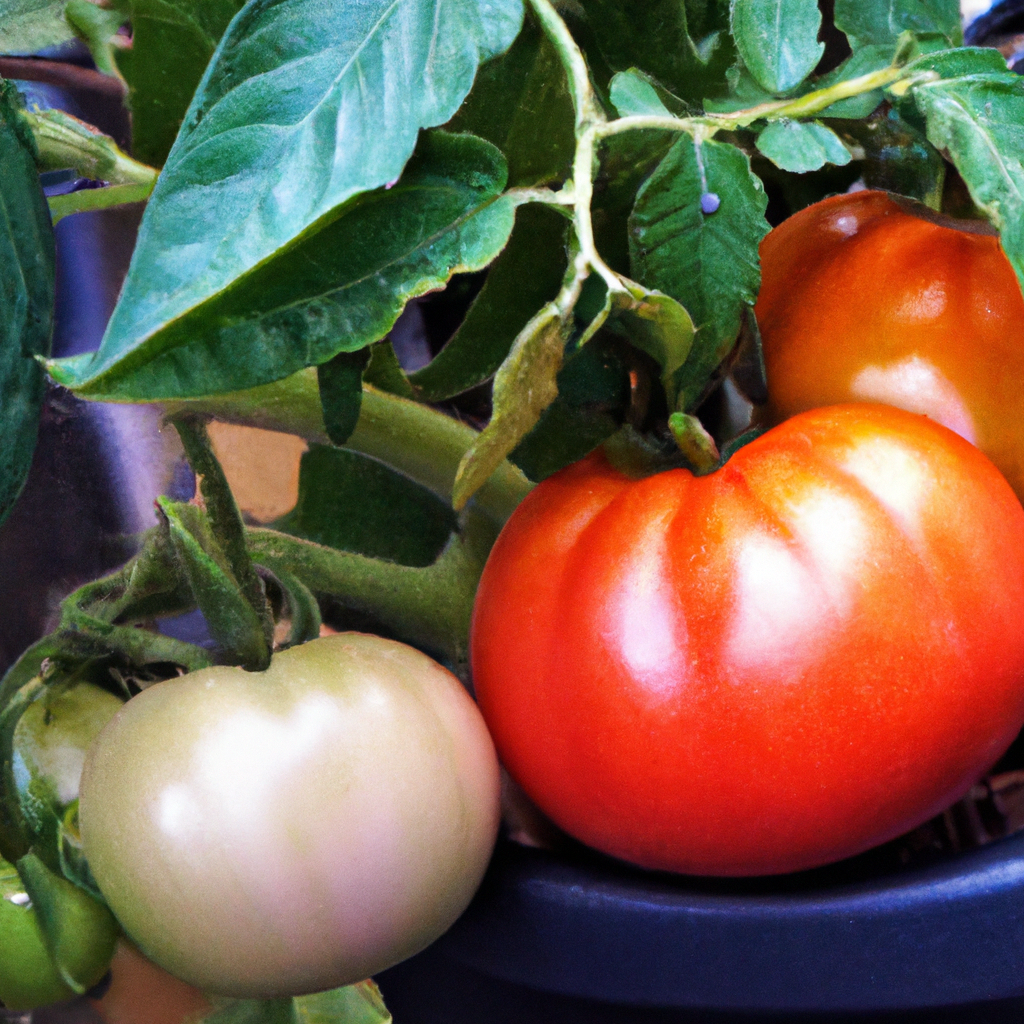
Imagine a bustling city transformed into a vibrant green oasis, with rooftops and empty lots sprouting with plants and vegetables. This picturesque scene is not just visually pleasing, but it also holds surprising health benefits for urban dwellers. Urban farming, the practice of growing vegetables, herbs, and fruits in urban areas, has been gaining popularity in recent years. Not only does it provide fresh and nutritious food, but it also promotes physical activity, reduces stress, and enhances mental well-being. In this article, we will explore the unexpected health benefits that urban farming brings to our busy urban lives.

Improves access to fresh and nutritious food
Urban farming plays a significant role in improving access to fresh and nutritious food, particularly in urban areas where access to such produce may be limited. By cultivating a variety of crops within the city, urban farming increases the availability of fresh produce, ensuring that individuals have greater access to healthy food choices. This is especially important in urban areas where there may be limited access to grocery stores or fresh food markets.
Along with increasing availability, urban farming also reduces reliance on processed and unhealthy food options. By growing your own fruits, vegetables, and herbs, you have the opportunity to incorporate these fresh ingredients into your diet. This shift towards a more plant-based diet encourages a diverse and nutrient-rich intake, ultimately promoting better overall health.
Enhances physical health
In addition to improving access to fresh and nutritious food, urban farming also contributes to enhancing physical health in several ways. Firstly, engaging in urban farming promotes physical activity as you spend time tending to and maintaining your crops. Whether it’s planting, watering, or harvesting, these activities get you moving and provide an opportunity for exercise.
Furthermore, urban farming is associated with improved cardiovascular health. Regular physical activity, combined with a diet rich in fresh produce, can lower the risk of cardiovascular diseases such as heart disease and stroke. By incorporating more fruits, vegetables, and herbs into your diet, urban farming helps support a healthy heart and cardiovascular system.

Improves mental health and well-being
Beyond the physical benefits, urban farming has a positive impact on mental health and overall well-being. Engaging in the process of cultivating and nurturing plants can reduce stress and anxiety. The calming effects of being surrounded by nature, working with your hands, and observing the growth and progress of your crops can have therapeutic benefits.
Urban farming also provides a sense of purpose and accomplishment. Watching your crops flourish and being able to harvest your own food creates a rewarding experience. This sense of achievement contributes to a positive mindset, boosting self-esteem and overall mental well-being.
Additionally, urban farming promotes social interaction and community bonding. Many urban farming initiatives involve community gardens or shared spaces, where individuals can come together, share knowledge, and collaborate. This fosters a sense of belonging and connection with others who share similar interests, resulting in a stronger community support network.
Enhances environmental sustainability
Urban farming offers numerous environmental benefits, contributing to a more sustainable and eco-friendly urban landscape. One of the key environmental advantages is the reduction of food miles and carbon footprint. With food grown in urban areas, the distance traveled from farm to table decreases significantly, reducing transportation-related emissions and energy consumption.
Furthermore, urban farming conserves water resources by utilizing efficient watering techniques such as drip irrigation and rainwater harvesting. By implementing these methods, urban farmers can minimize water waste and ensure optimal water usage for their crops.
Additionally, urban farming helps mitigate the heat island effect. The presence of green spaces and vegetation in urban areas helps absorb and dissipate heat, reducing overall temperatures and improving the microclimate. This contributes to a more comfortable and sustainable urban environment for both humans and wildlife.

Creates economic opportunities
Urban farming is not only beneficial for individuals and communities but also creates economic opportunities. By growing and selling produce, urban farmers can generate income. This income can help support them financially and improve their overall quality of life. Moreover, selling locally grown produce contributes to the local economy, as the money spent on these products often stays within the community, thus boosting economic growth.
In addition to income generation, urban farming also creates jobs in the field of agriculture. Whether it’s managing community gardens, operating urban farms, or providing gardening services, urban farming opens up employment opportunities. These jobs not only contribute to the local economy but also promote entrepreneurship and empower individuals to pursue their passion for sustainable agriculture.
Addresses food security and resilience
Urban farming plays a crucial role in addressing food security and building resilience within communities. By growing food locally, urban farming reduces dependency on external food sources. This is particularly significant during emergencies and crises when access to traditional food distribution channels may be disrupted. With urban farming, communities have the ability to produce their own food, ensuring a more consistent and reliable food supply.
Not only does urban farming increase urban food production, but it also builds community resilience to food shortages. By promoting self-sufficiency and empowering individuals to grow their own food, urban farming strengthens communities and their ability to respond to food-related challenges. Investing in urban farming initiatives can help communities become more resilient in the face of adversity, ultimately ensuring food security for all.

Improves air quality
Another significant benefit of urban farming is its positive impact on air quality. Urban areas often face issues related to air pollution and particulate matter. However, the presence of plants and vegetation in urban farming helps reduce air pollution levels. Plants absorb carbon dioxide and other harmful pollutants from the air, resulting in cleaner and healthier urban environments.
Moreover, urban farming contributes to increased oxygen production and air filtration. Through the process of photosynthesis, plants release oxygen into the atmosphere, improving air quality. Additionally, the leaves of plants act as natural filters, trapping particulate matter and reducing its presence in the air we breathe.
Urban farming also assists in combating urban heat. Vegetation and green spaces provide shade and help cool the surrounding areas, mitigating the heat island effect. By reducing high temperatures in urban environments, urban farming creates more livable and pleasant spaces for residents.
Reduces food waste
One of the major challenges in the current food system is food waste. However, urban farming has the potential to reduce food waste significantly. By growing your own food, you can minimize food loss and spoilage that often occurs during transportation and storage. Freshly harvested crops can be consumed immediately, reducing the amount of wasted food.
Additionally, urban farming allows for the utilization of surplus and imperfect produce. Instead of discarding these items, they can be used and consumed. This reduces the overall amount of food wasted and promotes a more sustainable approach to food consumption.
Furthermore, urban farming encourages composting and recycling of organic waste. Composting leftover plant material and food scraps creates nutrient-rich soil amendments, closing the loop and promoting a circular economy. By reducing food waste, urban farming contributes to a more sustainable and efficient food system.

Enhances biodiversity and habitat
In the midst of urbanization, urban farming provides valuable green spaces that support biodiversity and provide habitats for wildlife. These green spaces act as oases within concrete jungles, offering refuge to various plant and animal species.
Urban farming supports pollinators and beneficial insects, such as bees and butterflies, by providing a source of nectar and pollen. By attracting these important creatures, urban farming contributes to the pollination of surrounding plants, boosting overall ecosystem health.
Moreover, urban farming preserves urban ecosystems. As cities continue to expand, natural habitats are often destroyed. However, through urban farming initiatives, green spaces are created, restoring and preserving urban ecosystems. These spaces not only benefit the environment but also provide opportunities for individuals to connect with nature and learn about the importance of biodiversity.
Educational benefits for children and communities
Urban farming offers numerous educational benefits, particularly for children and communities. By engaging in urban farming, children have the opportunity to learn about food production and healthy eating firsthand. They can witness the growth and transformation of plants, understand the importance of sustainable agriculture, and develop a greater appreciation for where their food comes from.
Furthermore, urban farming fosters hands-on learning and life skills. Through tending to the crops, individuals acquire practical skills related to gardening, food production, and environmental stewardship. These skills can be applied throughout their lives, empowering them to live sustainably and make informed choices.
Urban farming also allows for community engagement and the sharing of knowledge. Community gardens and shared urban farming spaces create opportunities for individuals to come together, collaborate, and exchange ideas. This sharing of knowledge not only strengthens community bonds but also fosters creativity, innovation, and collective problem-solving.
In conclusion, urban farming offers a multitude of benefits that enhance various aspects of our lives. From improving access to fresh and nutritious food, to promoting physical and mental well-being, to addressing environmental and economic challenges, urban farming plays a vital role in building healthy and sustainable communities. Whether through community gardens, rooftop farming, or individual initiatives, urban farming provides a pathway towards a healthier, more resilient, and inclusive future. So roll up your sleeves, grab a shovel, and start reaping the surprising benefits of urban farming today!







